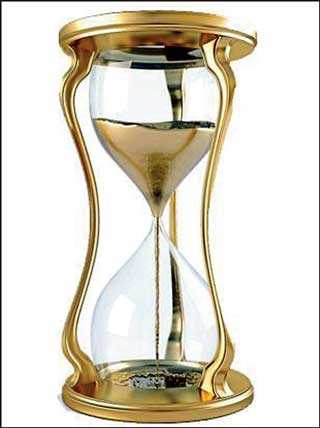Thursday Feb 19, 2026
Thursday Feb 19, 2026
Friday, 7 August 2020 00:28 - - {{hitsCtrl.values.hits}}
As many other executives she too had to manage time with meetings. Some she chaired and some she had to take part in. We agreed that she maintains a log about the meetings capturing the following information:
1.When was the meeting-time intended and actual?
 |
| Time is the most expensive resource that gets wasted in many organisations |
2.Who initiated the meeting?
3.What was the purpose of the meeting?
4.Was that achieved at the end?
5.What was your role, and how critical was it?
After about three weeks when we reviewed the findings, she could come up with a plan to change the way meetings are conducted in the whole organisation. She appreciated that time is the most expensive resource that gets wasted in many organisations. Executive time at meetings if costed can be significant.
She introduced a kind of template that guided how meetings are set up:
1.What is the purpose of the meeting
2.If it is to make a decision, who will make the decision, how will the decision be made, based on what factors? E.g. a decision can be made based purely on financial factors, or marketing decision with or without market research data, etc. Or will the decision be made by one person or will need consensus, etc. fall within this consideration.
3.Who should attend, and why? This clarifies as to what each person should bring to the table in terms of advanced preparation, etc. There can be some who should attend because they need to be in the know, and others to manage the internal political dimensions, etc.
4.When should the decision be made – is there a timeline?
5.What is the follow up mechanism? Who, how and when – most meetings do not focus on this piece and they all go back thinking someone will do what needs to be done.
6.Meeting starting time and end time, if cannot be finished within that time, the options.
She got her IT team to create this as an internal meeting planning tool, so the conveners of meetings went through the thinking process in a structured manner.
Then came the challenge of establishing the meeting disciplines and the role of the chair. As she was progressing on this project the COVID-19 came and the Zoom and Team meetings became the norm. Actually the online meetings lent very much to bring some of the disciplines such as only one person to speak at a time, to start the meetings on time and to finish the meetings on time, if a conclusion is not arrived adjourn the meeting and reconvene and the chair to encourage everyone to contribute. Online meetings also compelled the participants to share slides, notes, spreadsheets among participants early thus ensuring a healthy debate.
Because the meetings could be recorded, preparing minutes and sending them became very quick and easy.
I shared with her the Japanese concept of Ichi Go – Ichi e which can be translated to One Time One Meeting. According to this Japanese concept both the visitor and the host consider that this could be the last time they meet thus give each other total attention. When meetings are approached that way the intensity of focus is very high and thus the results are far better.
At another level you realise that the life is nothing but the timespan between birth and death, thus everything we do is done spending life! Our most precious asset.
If something is worth spending life, then shouldn’t that be done with utmost respect and concern? Bringing this kind of an attitude to work and especially meetings the participants tend to respect each other more. Try to understand the other person first. The task at hand becomes the most important task, the person in front becomes the most important person and this becomes the most important moment. When the attitude towards time is changed the attitude towards life changes, when that is changed the attitude towards meetings and everything else you do in the work get changed for better.
Time eventually is what you do with it!
(Deepal Sooriyaarachchi is an accredited master coach and a mentor, with over many years of senior management and board level experience. He can be contacted at [email protected].)
